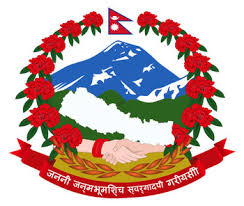Engineering students protest after 176.78 percent fee hike by IOE

Kathmandu / Aug 24: The Institute of Engineering (IOE), a part of Tribhuvan University, has implemented a substantial tuition fee hike of 176.78 percent. This decision has stirred protests from students within the constituent colleges of the institute. The move, executed by the institute’s executive committee on August 10, 2023, resulted in an abrupt increase in fees for the constituent campus from Rs 280,000 to Rs 775,000. IOE officials justified the fee hike by pointing out that while private colleges operate under governmental ownership, the government has contributed negligibly to technical education. This scarcity of support has led to financial constraints in running the college, prompting the fee adjustment after 27 years. The tuition for a four-year Bachelor of Engineering program has remained at Rs 280,000 since 2053 BS.
Under the leadership of Biraj Aryal, president of the Free Student Union (FSU) at Pulchowk Engineering Campus, students initiated protests, demanding the immediate rollback of the fee increase. They perceive the increment as a barrier for hardworking students, particularly those from economically disadvantaged backgrounds. Additionally, a delegation of Pulchowk Engineering students, led by Samik Badal, president of the All Nepal National Free Students Union (ANNFSU), met with Education, Science, and Technology Minister Ashok Kumar Rai. They submitted a memorandum urging the annulment of the heightened fee structure.
Biraj Aryal, FSU President, highlighted the dissonance between governmental rhetoric on technical education and the lack of corresponding actions. Students lamented the erosion of higher education standards, as the government has not taken substantial measures beyond mere silence. While the constitution guarantees education as a fundamental right, ensuring accessibility and equality, the state has not upheld this commitment for economically disadvantaged, disabled, and socially marginalized students.
Aryal criticized the government’s failure to live up to its pledge of providing 70 percent technical and 30 percent general education, thereby hindering progress in engineering education. He remarked, “Despite the Minister of Education serving as the Vice-Chancellor of the University and the Prime Minister as the Chancellor, the emphasis on research-based technical education has been minimal.” He cautioned, “In order to stem the outflow of indigenous students seeking higher education, the government must invest more in education, offering free engineering education. We demand an immediate reversal of the substantial fee hike that has obstructed new admissions. We also issue a stern warning of a potent movement against this fee increase.”
On the contrary, Principal of Pulchowk Engineering College, Indra Acharya, clarified that the institute’s fee adjustment was necessitated after 27 years due to financial challenges. He explained that while the college imparts education across five constituent campuses, including Pulchowk, Thapathali, Chitwan Engineering College, Purbanchal Engineering College Dharan, and Paschimanchal Engineering College Pokhara, the government has not allocated adequate resources for teaching staff and administrative expenses. Acharya underlined that new engineering subjects have been introduced to align with current demands, but the lack of faculty and administrative resources persists. He said, “The Service Commission remains inactive,” adding, “We have hired contract-based teachers from internal sources. Interestingly, a four-year BBA course is more expensive than engineering.” Acharya indicated that unless fees are increased, closure of the five colleges and surrendering the keys to the government might be the only viable option within the next two years.
Prof Dr Chintamani Pokhrel, Assistant Dean of the institute, noted that while the institute retains permanent positions for 500 teachers and 400 employees, the government has failed to fulfill 40 percent of these roles. “Every year, 2,040 students enroll in 12 undergraduate subjects, and 2,000 students pursue postgraduate studies. Yet, 40 percent of the teaching positions remain vacant,” Assistant Dean Pokhrel disclosed. Despite reporting this concern to the Chancellor, Vice-Chancellor, and Assistant Vice-Chancellor, no concrete resolution has been presented. “The only alternatives now are either a fee increase or closing the colleges and returning the key to the government,” Pokhrel concluded.
